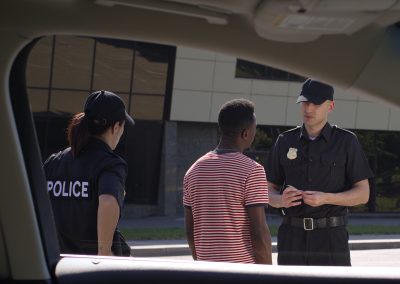It’s 0300 on a Tuesday. It’s been a relatively slow shift which is set to end at 0600. You’re serving as a Field Training Officer (FTO). It’s Day 17 of the FTO period. You and the new officer have started to find your rhythm. Amid a slow night of catching up on reports and completing mandatory policy reviews, a storm begins to enter your area. In the back of your mind you think to yourself, “Great. Another storm. That means I’ll be sent to 485 W. Main Street for an alarm drop.”
We’ve all been there.
For the past 7 years of your career, you have responded to 485 W. Main almost every time it storms. You know there’s a 99.8% chance that nothing will ever be there. It’s so familiar to get an alarm drop there that you almost instinctively start pointing your car in that direction as soon as the first sound of thunder cracks through the air.
The sound of the dispatcher breaks the silence of the radio. The alarm call comes in for “485 W. Main.”
You now have an option.
Option 1. You can look at your trainee and tell them that the alarm triggers each time it storms. You can respond there, knowing full and well nothing will happen. You can check the log and see how many times you have been there, issue a citation, if warranted, and go on about your shift.
Or …
Option 2. You take into consideration doing what’s right for a new officer. You can look at the length of their career and teach them proper habits early on.
Option 2 is the harder option, and it requires more work to complete. In Option 2, you respond to the alarm. You tell the trainee that you know the layout of the building. You go on to tell the new officer which doors of the facility provide the best tactics for entry. You devise an entry and clearing plan with the trainee. When you arrive on the scene, you direct them to where to enter the building and methodically clear each room as if your lives depended on it.
You do it by the book, never letting on that you know this is most likely a false alarm. You make it real.
Conclusion
By doing what is right, you have created more work on your part. The other thing that you have done is provided a real-life training exercise for a new officer. You have instilled in them good habits that will help give them the tools to return home safe for the remainder of their career.
Doing right by people is the heart of leadership. Lead from where you are, and do right by your fellow officers. Formal authority is not needed to be a leader. Leading isn’t always easy. It often requires more work. Leading is a responsibility we all share.










0 Comments